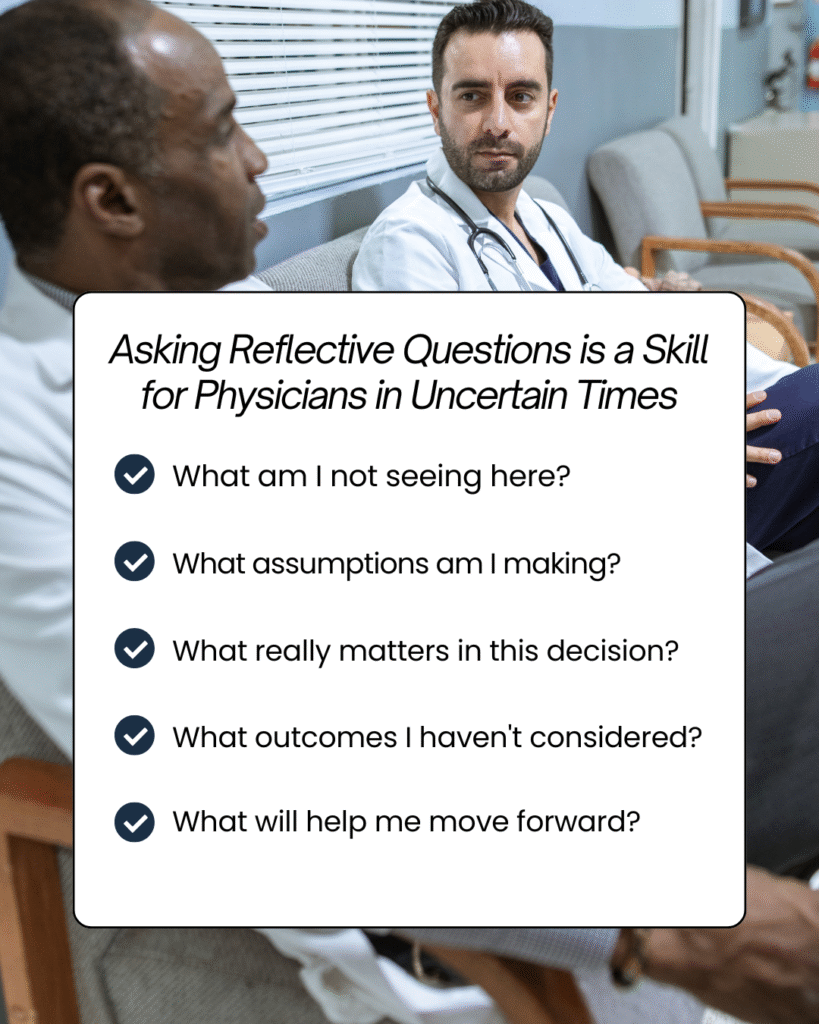Physicians are trained to be decisive and confident, but what happens when we’re not in control? We naturally rely on our data, experience, instinct, and training to act, but with really complex problems, the path forward still might not be clear. During uncertain times, one of the best things we can do is ask reflective questions. Doing so deepens our understanding of problems, uncovers hidden assumptions, and ultimately leads to more confident and creative decision-making. This approach mirrors the coaching mindset—a mindset defined by the ICF as open, curious, and flexible. (ICF Core Competencies)
Reflection Questions are Open-Ended
In coaching, asking open-ended questions is a foundational skill. These are questions that make us think deeply. Questions like:
- What am I not seeing here?
- What really matters in this decision?
- What are the possible outcomes I haven’t considered?
Physicians regularly operate from a space of not knowing. Whether diagnosing a patient with ambiguous symptoms or leading a team through uncertainty, we often wish we had more clarity. Asking reflective questions invites us to slow down, look beneath the surface, and get a clearer understanding about the complexity of a situation.
Reflective Questions Build Awareness
Asking reflective questions can help us understand external challenges and help us understand ourselves by clarifying our feelings, goals, and values. It can reveal when fear or urgency is clouding our judgment, or when we’re operating from outdated assumptions.
Reflective questions also allow us to shift perspective and challenge our default thinking. They help us consider new possibilities and uncover solutions we couldn’t see before. In moments of uncertainty, this kind of awareness is a crucial leadership skill.
Go from Clarity to Action
When we ask deeper questions, we often find that the answers come more easily—or we discover that our original question wasn’t the right one to begin with. Reflecting, reframing, and realignment can turn uncertainty into a launchpad for more thoughtful, aligned action.
This coaching approach to decision-making doesn’t mean avoiding decisions or dwelling endlessly on hypotheticals. It means taking the time to ask the questions that matter most before acting.
Reflective Questions
Next time you find yourself facing a difficult decision, try asking:
- What do I want to be true when I look back on this moment?
- What assumptions am I making right now?
- What support or information would help me move forward?

Asking reflective questions isn’t just for coaches. It’s for all of us—especially for physicians during uncertain times. This means adopting a coaching mindset, one based on curiosity, reflection, and the belief that better questions can lead to better outcomes.
Source: ICF Core Competencies
